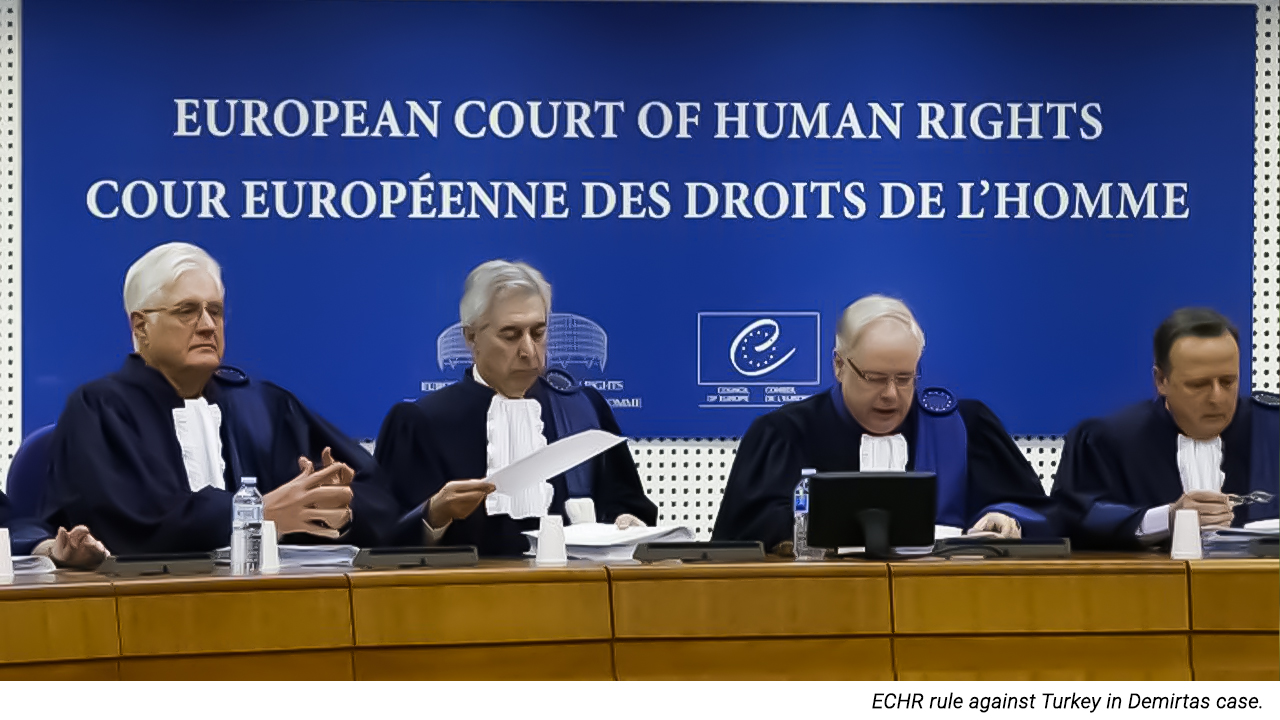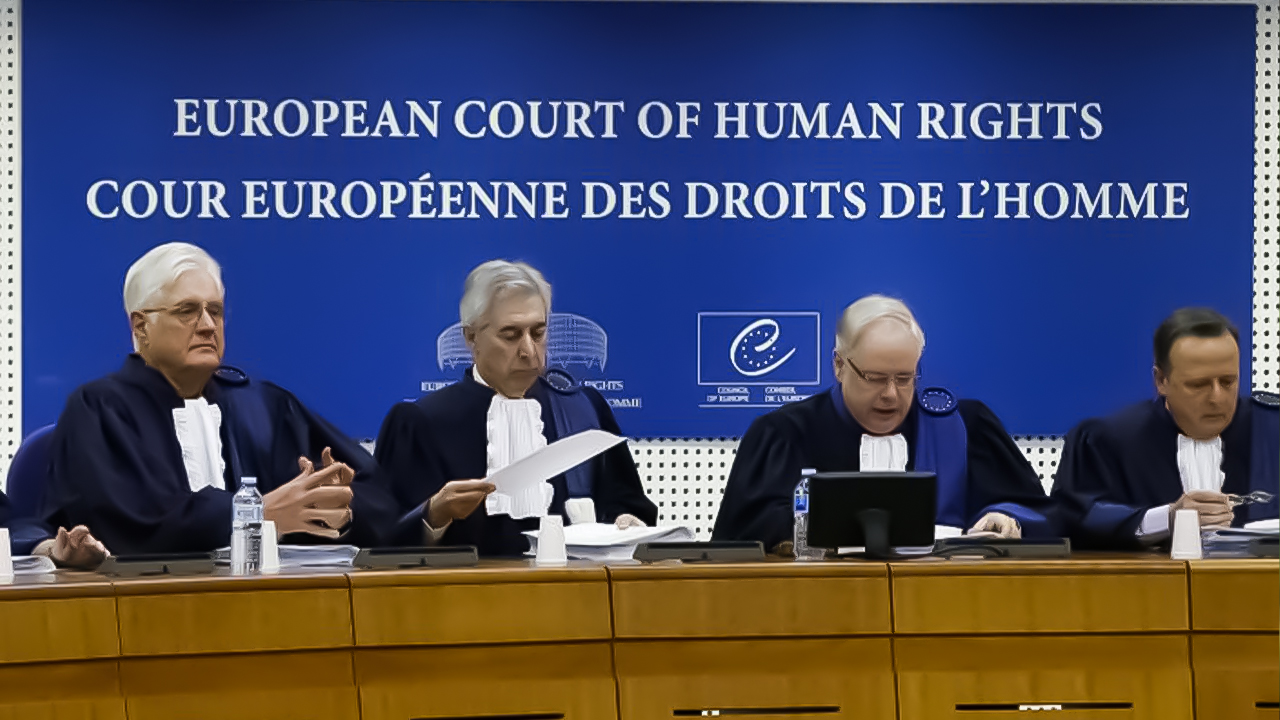by Fréderike Geerdink
As expected, yesterday afternoon the Grand Chamber of the European Court of Human Rights (ECHR) has ordered the immediate release of former HDP co-chair Selahattin Demirtaş. Several of his rights, like his freedom of expression, his right to liberty and security and to a speedy decision on the lawfulness of his detention, were violated.
Incredibly good news.
Unfortunately though, with the conviction and arrest of another Kurdish icon, Leyla Güven, on the day before the Demirtaş-ruling, Turkey clearly states: “We don’t care about your rulings, European Court, we will jail as many Kurds, for as long as we please and there is nothing you can do about it.”
Maybe it’s about time the ECHR acts upon that painful truth.
*At the time of writing this column, the site of ECHR was hacked by some Turkish group and the verdict was not available but if it is again, you can find it via this tweet of the Court.
It is, of course, not the first time that the ECHR has ruled that the imprisonment of Selahattin Demirtaş is unlawful and that he should instantly be freed. Every time again however, the Turkish judiciary came up with another trick to keep him jailed anyway, for example by quickly starting a new procedure against him or by convicting him in another case. An article I published last year still provides some insight into the details.

This time, however, there are no excuses anymore. The Grand Chamber’s decision is the final one, Turkey can not appeal it anymore.
Reasonable level
Under the European Convention on Human Rights, Council of Europe (CoE) member states are obliged to follow rulings of the Court. But the premise is that the states are, to a reasonable level, committed to upholding the rights of their citizens. Not only should the verdict be respected and carried out, also national legislation should be adopted to the Court’s ruling so that other citizens won’t become victims of the same rights violation.
In general, this works.
There are no ways in which the court can force compliance. There is no team that can go to, in this case, Turkey and actually open the door of the prison cell in which Demirtaş is jailed. There are no sanctions or other consequences either. As one of Demirtaş’s lawyers told me, the case will be in the hands of the Committee of Ministers of the Council of Europe, who oversee if rulings are carried out. I’m not sure what this Committee can do but increase pressure, but what it boils down to is that Demirtaş will only be released when Erdoğan is somehow ready for it.

The same counts for Leyla Güven, by the way. She was convicted for ‘leadership of a terrorist organisation’ because of her work for the Democratic Society Congress (DTK), an umbrella of civil society organisations that works for the advancement of a democratic society. The ruling explicitely states (on page 5) that the DTK is a lawful organisation and that being involved in it can not be deemed sufficient to establish an active link between the applicant and an armed organisation. Since the Court’s rulings transcend the individual case, this applies to Leyla Güven and many others in the same situation as well. As Ramazan Demir, one of Demirtas’s lawyers, tweeted, they should all be released and acquitted.
Increasing distrust
We are (well, I don’t know about you, but I for sure am) rightfully infuriated with Turkey for Güven’s conviction and arrest and for the fact that Demirtaş and all the other political prisoners remain confined to their prison cells. My anger is, however, increasingly directed at the European Court of Human Rights as well. Citizens of Turkey have been appealing to the ECHR for decades now and the violation of their rights are usually individually repaired, for example with fines and compensations that Turkey always obediently pays, but it never fundamentally changes anything.
I have often wondered what the Court is good for anyway, observing an increasing distrust in the Court among Kurds. But I am not a lawyer or jurist but it’s hard for me to figure out why the Court’s rulings fail to deliver change.
That’s why I am so eagerly reading the newly published book “Limits of Supranational Justice, the European Court of Human Rights and Turkey’s Kurdish Conflict” by Dilek Kurban (and published at Cambridge University Press), a fellow and lecturer at the Hertie School in Berlin, Germany. I haven’t finished it yet, but she states that since the 1990s, individual Kurds were vindicated by the Court but the Kurds as a people were not.
Rogue state
The Court has treated Turkey as if it is a state committed to respecting the rights of its citizens and of minorities and never showed in its ruling that it was in fact ‘a rogue state disregarding the basic notions of the rule of law’. The ECHR has been hiding behind procedure, disregarded history and politics and, Ms Kurban adds, “shied away from identifying patterns of state violence despite the conclusions that UN and CoE non-judicial bodies had reached based on their fact-finding missions”.
The Court didn’t have to act like that. There were judicial paths it could have taken to contribute more to protect citizens’ rights and lives but it chose not to do that, subject as it has increasingly become of the dynamics in EU-Turkey relationships. Damn Turkey, the culprit. Damn the Court, the accomplice.
Fréderike Geerdink is an independent journalist. Follow her on Twitter or subscribe to her weekly newsletter Expert Kurdistan.

















